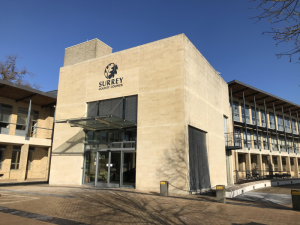Parties from across the spectrum called on the next government to change its funding model for local councils, claiming it is “not fit for purpose”.
Councillor Robert Evans (Labour, Spelthorne) told Surrey County Council (SCC) it should call on the next government to bring in a “fairer and robust system to replace council tax”. He put forward the motion at Surrey’s full council meeting on Tuesday, March 19.
Introduced in 1993, council tax is based on 30-year-old property valuations (from 1991). This is not affected by changes in house prices or how much the property is worth today.
Average house prices in Surrey have risen over 400 per cent, from £103,569 in January 1995 to £525,897 in December 2023.
Leader of the County Council Tim Oliver (Conservative, Weybridge) said the issues are not party-political, but “local government vs central government”. He added: “Everything should be put on the table. We are now at a crisis point within the local government and we need to do something different.”
Wage inflation, general inflation and soaring demands in adult social care and child services have squeezed council budgets, exceeding the income received from central government. The Local Government Association (LGA) found councils have suffered a 27 per cent real-terms cut in core spending power since 2010.
Council tax for Surrey residents will increase a further 4.99 per cent from April, as the county leader claims £1.2bn net is needed for the council. Around 70 per cent of SCC’s budget is spent on social care. With Surrey’s older demographic and ageing population, the demands on care are likely to increase.
Deputy leader for bankrupt Woking Borough Council, Cllr Will Forster (Liberal Democrats) said: “When there is so much cross-party consensus, in and out of the political spectrum, I think something is up.”
Cllr Forster said as a “ridiculous comparison” , Buckingham Palace, valued at £1bn, sits in Band H and pays just over £1,800 council tax, which is equivalent to a Band B property in Surrey.
In the short-term, Cllr Evans suggested the government could introduce new council tax bands “so the wealthy in larger homes could contribute a fairer percentage of their income to Surrey”.
He also suggested as a long-term proposal, to replace council tax, stamp duty and the bedroom tax with a “proportional property tax based on property values updated annually”. Another “more radical” option would be a land tax as land or a site itself- not the buildings or anything on it would be valued.
Discussions on local government funding were extended to include reforming business rates and highways funding. Speculative options also mentioned a local levy on fuel duty and petrol stations, airport tax, tourists charges, increased fines in breaches of highway rules.
The motion was resolved that SCC would lobby the next government, following the General Election, to overhaul local council funding.
Related reports:
Local Government monopoly board at play?


